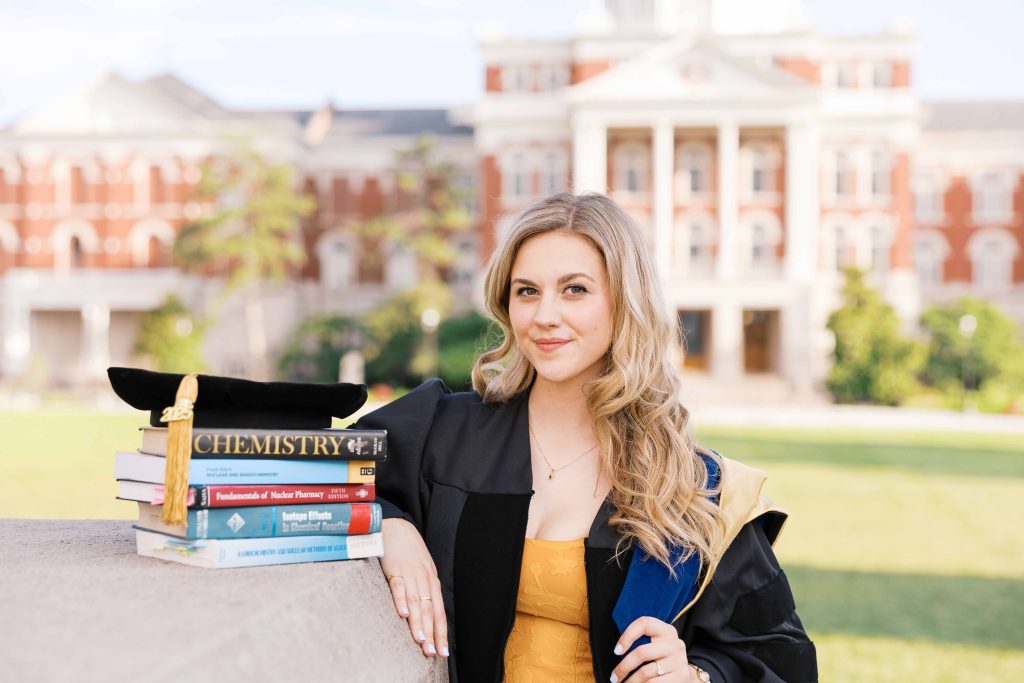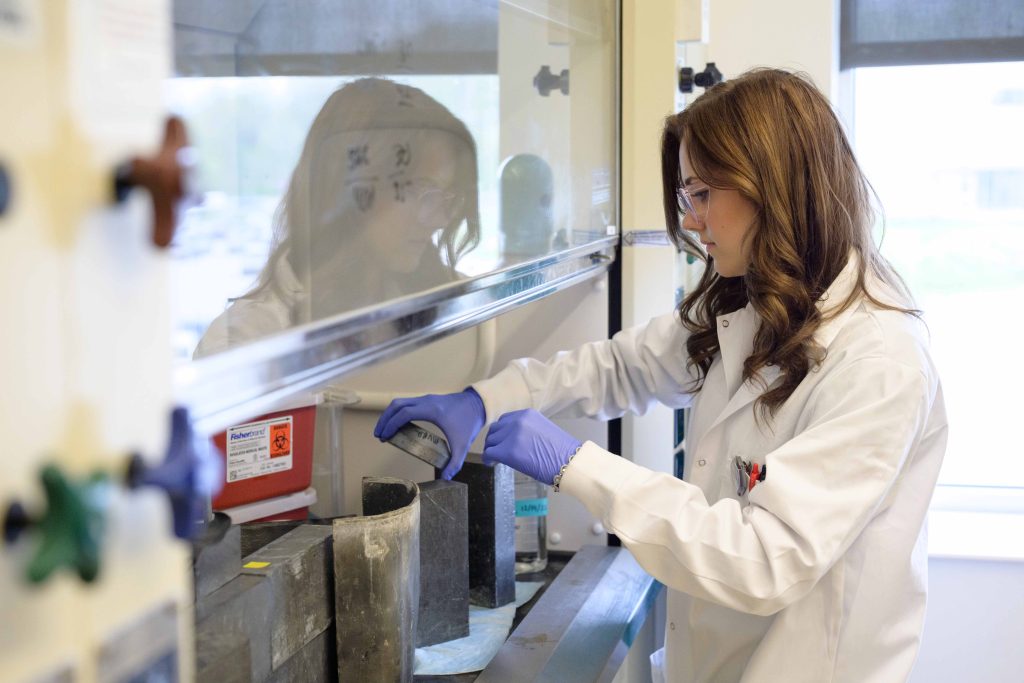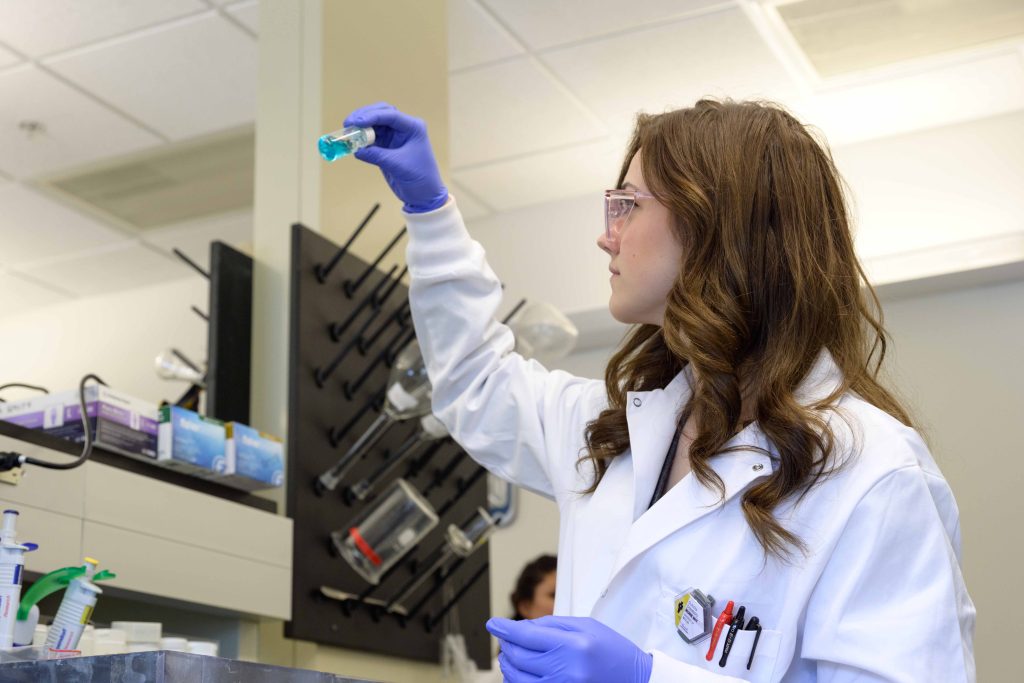Published on Oct. 30, 2025
Updated on Oct. 31, 2025
By Cary Littlejohn

The University of Missouri provides countless advantages to its world-class researchers.
One of its most useful resources for researchers might also be one of its most-hidden gems because it’s not geared toward helping them conduct the research but rather to be able communicate about the research clearly.
Mizzou’s Writing Center will celebrate its 50th year on campus next year, and its goal has remained unchanged for half a century: help writers of any background no matter where they are in the writing process.
What has changed is the way those services reach graduate students. The Writing Center added support for graduate students in 1982, but its resources and services have steadily expanded ever since. The Writing Center officially established its Graduate Writing Support program in 2011. In 2023, it expanded its offerings even further to ensure graduate students have access to services and programming, hosted in close partnership with the Graduate School, that meets their specific needs on campus.
The Writing Center provides its traditional one-on-one tutoring sessions, as well as asynchronous anytime support through its Online Writery. Since the COVID-19 pandemic reordered what was possible in terms of tutoring, the Writing Center has continued to offer remote sessions via Zoom.
Graduate school brings its own unique challenges, and the Graduate Writing Support program has evolved to address those needs through its tailored suite of programming. For students in science, technology, engineering and math (STEM) fields, like Claudia Chambers, BS ’21, PhD ’25, guidance from the Writing Center provided support for scientific writing that wasn’t inherent in her coursework.

Geared toward graduate students
Chambers knew what innumerable graduate students who came before her knew: Writing, even under the best of circumstances, is hard to do well.
“It was never quite for me,” Chambers said of writing. “It was difficult. It’s challenging to fully get what you want to say just right, so it was a learning curve to start any sort of academic writing in undergrad.”
Students in the STEM fields can face an even steeper learning curve: These areas of study have so many non-writing skills to develop that writing, no matter how important it is to communicating their eventual research findings, gets largely overlooked.
“No one tells you how to write,” Chambers said. “They say, ‘Go read a paper and just write like that.’ And that’s easier said than done. I had no guidance for writing at all, and I think that a lot of my colleagues don’t either.”
Chambers would be the first to admit that she harbored some preconceived notions about what the Writing Center did.
“I think a lot of people in STEM don’t utilize the Writing Center, because I used to think of it as, ‘I’ll teach you how to write this in a more wordy or more storytelling-oriented way. It’s going to be like reading a fiction book.’ But as a scientist, you are encouraged to write as concisely and as bluntly as possible, so they don’t think that the Writing Center could help their research writing.”
But through the recommendation of a friend who’d used the Writing Center’s Graduate Writing Support program to help her finish a dissertation, Chambers decided to give it a chance. She quickly realized that many in STEM had it wrong: The Writing Center absolutely could benefit their research-based writing.
GradsWork, the Writing Center’s weekly offering of structured time specifically for graduate students to work on whatever projects they wish, was precisely what Chambers needed at the time. GradsWork is offered Monday evenings from 5 to 8 p.m. with an additional monthly session on Saturday mornings from 9 a.m. to 12 p.m. in the Student Success Center during the fall and spring semesters. It provides graduate students space outside their graduate offices or kitchen tables for graduate students to write alongside other graduate students doing the same.”
“It was quiet, and they always had snacks,” Chambers said. “I could always ask questions if I felt stuck on something, but otherwise, I just had space and time to get things done that maybe I couldn’t get done in the lab. I wish I had used it earlier.”
Another program that Chambers found useful was the Writing Center’s Dissertation Acceleration and Navigation Group, known colloquially as the DANG. Think of it as a dissertation bootcamp: a week-long event that provided guided writing time, daily goal setting, planning and celebrations, catered lunch plus morning and afternoon snacks (thanks to the Graduate School) and presentations from different offices across campus.
“Someone would come in from the library and would say, ‘These are all the opportunities we have to help you look up research, to help you look up the data you need, to help you collect it, to help your boss collect it.’ Then the next day they would have someone else come in. They had someone come in from the Counseling Center to guide us in breath work. We got a lot of information from all these different services on campus, many of which I’d never heard about before.”
The best part, Chambers said, was that all these offerings presented her with different kinds of writing tools. Even if they seemed unrelated to writing at first, each session was designed to support her writing — they weren’t a distraction from writing her dissertation but rather were actively helping her to focus on finishing it.
Whether it was through the collaborative offerings during the DANG or the consistency (with room for flexibility) of GradsWork, Chambers found a resource in the Writing Center that she believes other graduate students need to be using. Especially her fellow STEM students.
Writing help for the science-minded
By the time she’d graduated from Mizzou with multiple degrees, Chambers was solidly a member of the STEM community. Her research focused on the development of radiopharmaceuticals, which are used in the detection and treatment of cancer. She worked in close partnership with the University of Missouri Research Reactor (MURR), which provided the radioisotopes that treated some 500,000 cancer patients last year alone.
But she didn’t start out that way; it was Mizzou and the opportunities she found here after she transferred here as an undergraduate student.

“The Writing Center really helps to push STEM students to become better writers and be comfortable with their writing skills.”
Claudia Chambers
“Mizzou kind of just pushed me and opened a ton of doors,” Chambers said. “I totally pivoted. I wasn’t a chemistry major at all until I came here, and once I got here, I joined any organization offered on campus that had chemistry in the name.”
Chambers’ focus on her STEM skills meant that she wasn’t spending as much time thinking about her writing skills. And that’s where the Writing Center came in.
“The Writing Center really helps to push STEM students to become better writers and be comfortable with their writing skills,” Chambers said. “STEM students are not geared towards writing, but they have to do it to be successful. I think that’s the hardest part about getting your paper out. You can do all this research, you can have piles and piles on data and numbers and all of your stats done, but how do you tell that story to an audience?”
Great research, like great writing, need not occur in isolation. Both endeavors can be made stronger through thoughtful collaboration, and the Writing Center stands ready to collaborate with any writer at any stage in their writing journey.